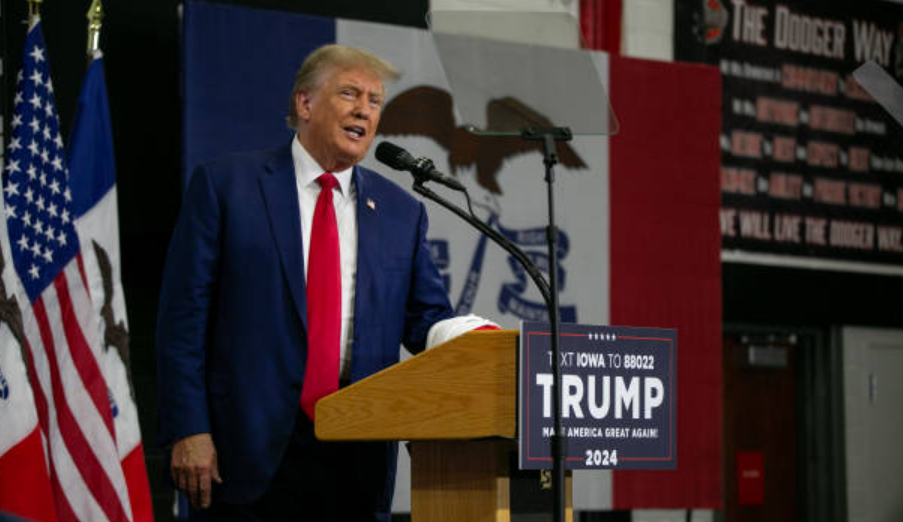Former President Donald Trump sparked controversy yet again with his remarks about former President Jimmy Carter at an event in Iowa.
Trump’s remarks followed shortly after the public announcement made by the Carter family, acknowledging that former First Lady Rosalynn Carter had been admitted into hospice care.
In a scathing critique targeting President Biden during a rally in Fort Dodge, Iowa, Trump sought to belittle the current administration by praising Jimmy Carter’s presidency. He claimed that compared to Biden, Carter appeared to be a brilliant leader, provoking mixed reactions among the crowd of supporters.
The Carter Center had revealed Rosalynn Carter’s hospice care admission, a decision commonly made by patients who opt to forego further treatment during their final days.
This announcement followed Jimmy Carter’s own hospice care entry earlier this year, while news of Rosalynn’s dementia diagnosis surfaced in May, shedding light on the couple’s ongoing health challenges.
Trump’s Future Ballot Status Unclear

Despite their health issues, Jason Carter, their grandson and Chairman of the Carter Center’s Board of Trustees, stated that the pair remains genuinely dedicated to each other. “They’re together.
Recognizing the considerable physical obstacles faced by his grandfather, Jason Carter highlighted that Jimmy Carter takes comfort in engaging with baseball matches and treasuring quality time with family, endeavoring to uphold a sense of routine and familiarity amidst their circumstances.
Meanwhile, amid Trump’s controversial remarks and the Carter family’s personal trials, a different battleground emerges the legal skirmish surrounding the 14th Amendment and Trump’s eligibility for the 2024 ballots.
Despite encountering multiple recent challenges, uncertainties persist regarding endeavors aimed at barring Trump from featuring on upcoming electoral ballots.
With the dynamics of political discourse intersecting personal tribulations, the clash over Trump’s future political presence unfolds against a backdrop of both criticism and empathy, shaping a narrative that transcends mere political maneuvering.


Comments are closed.